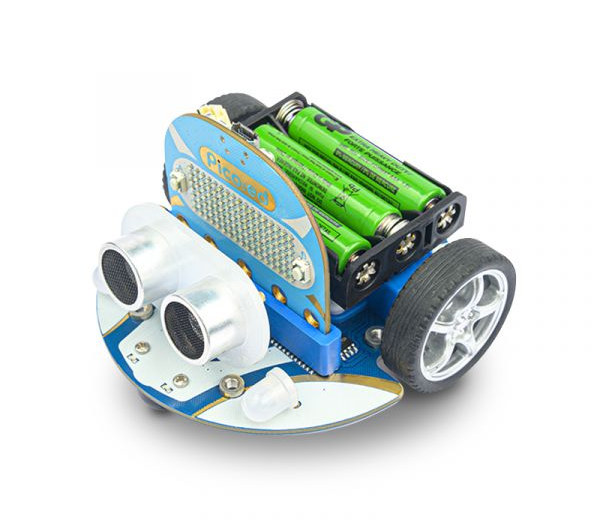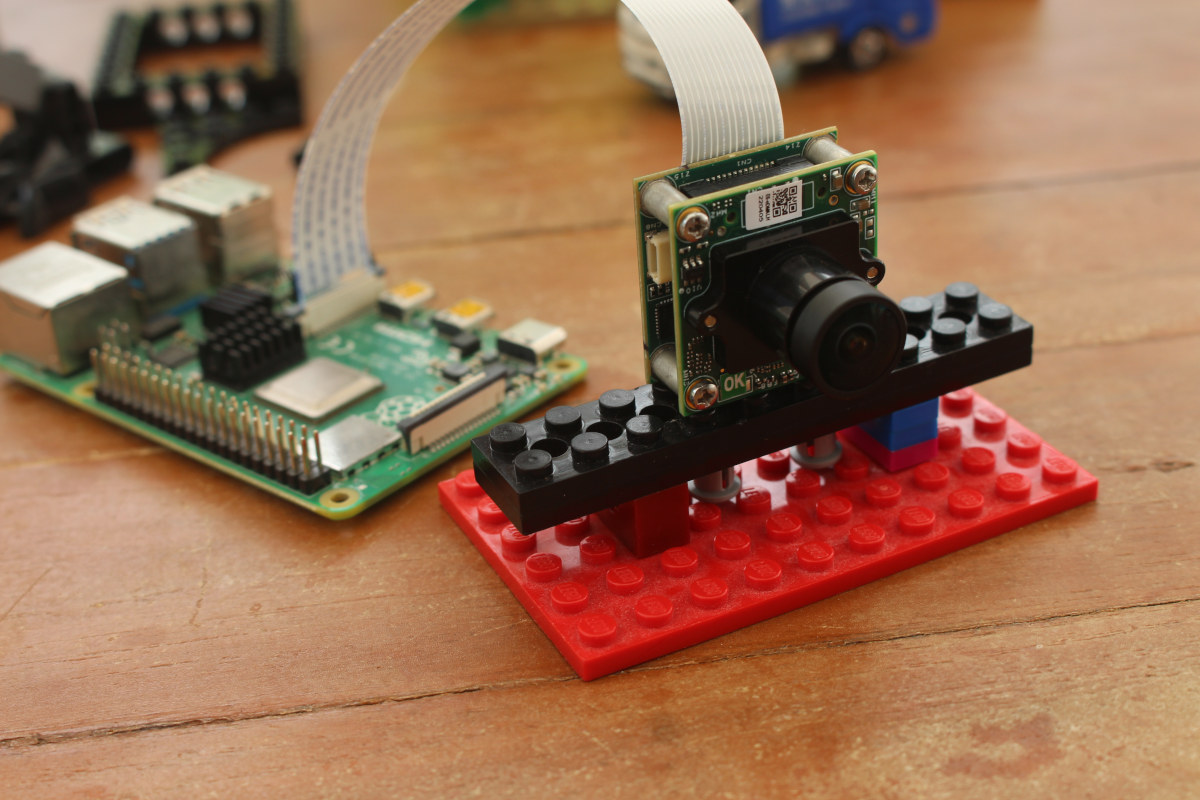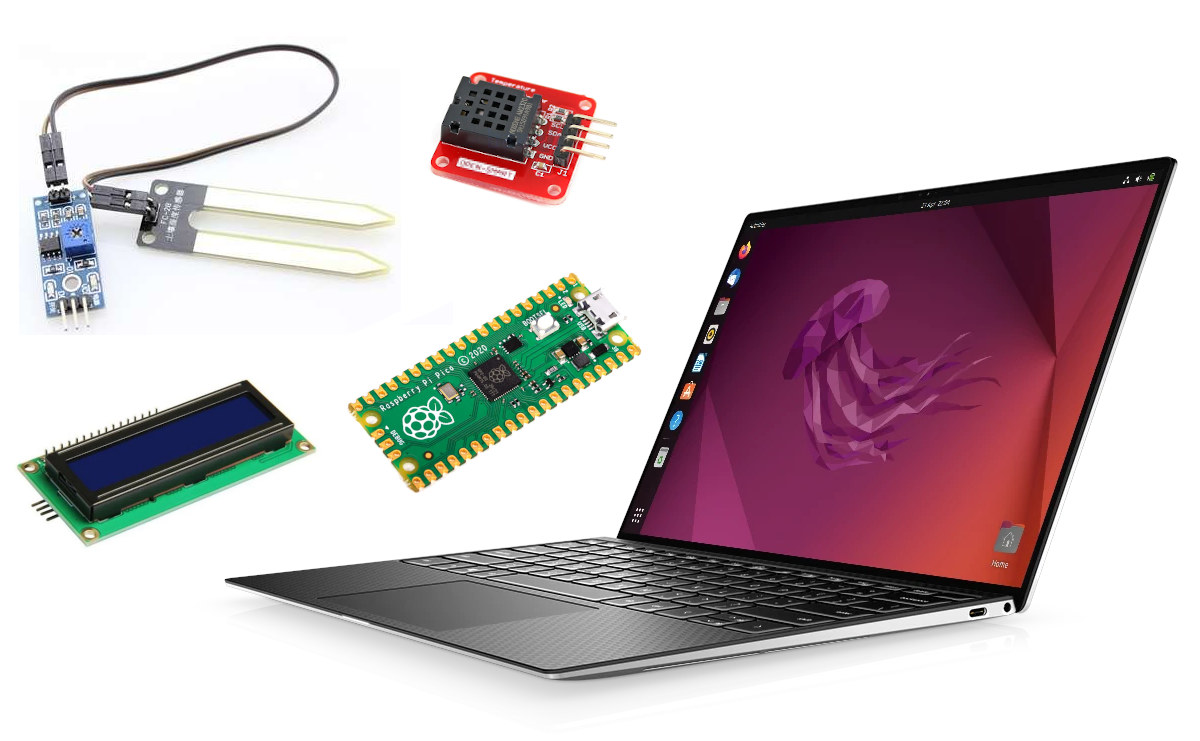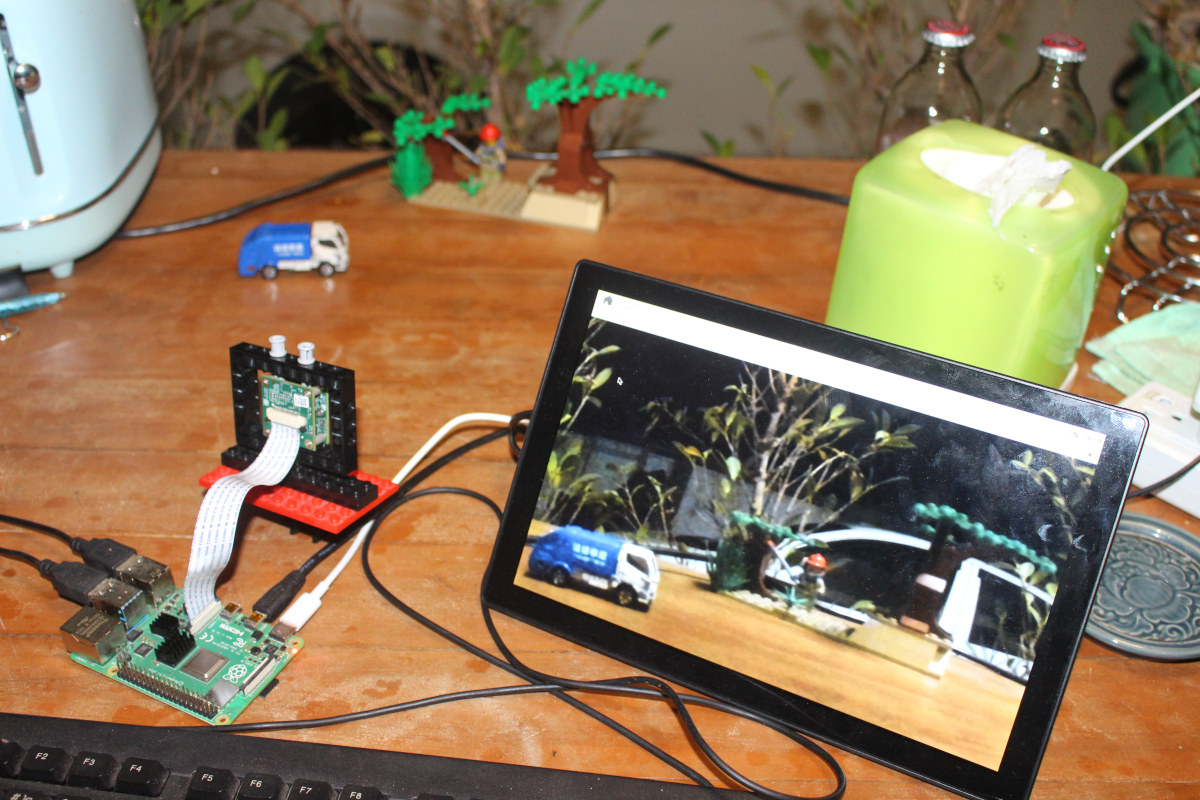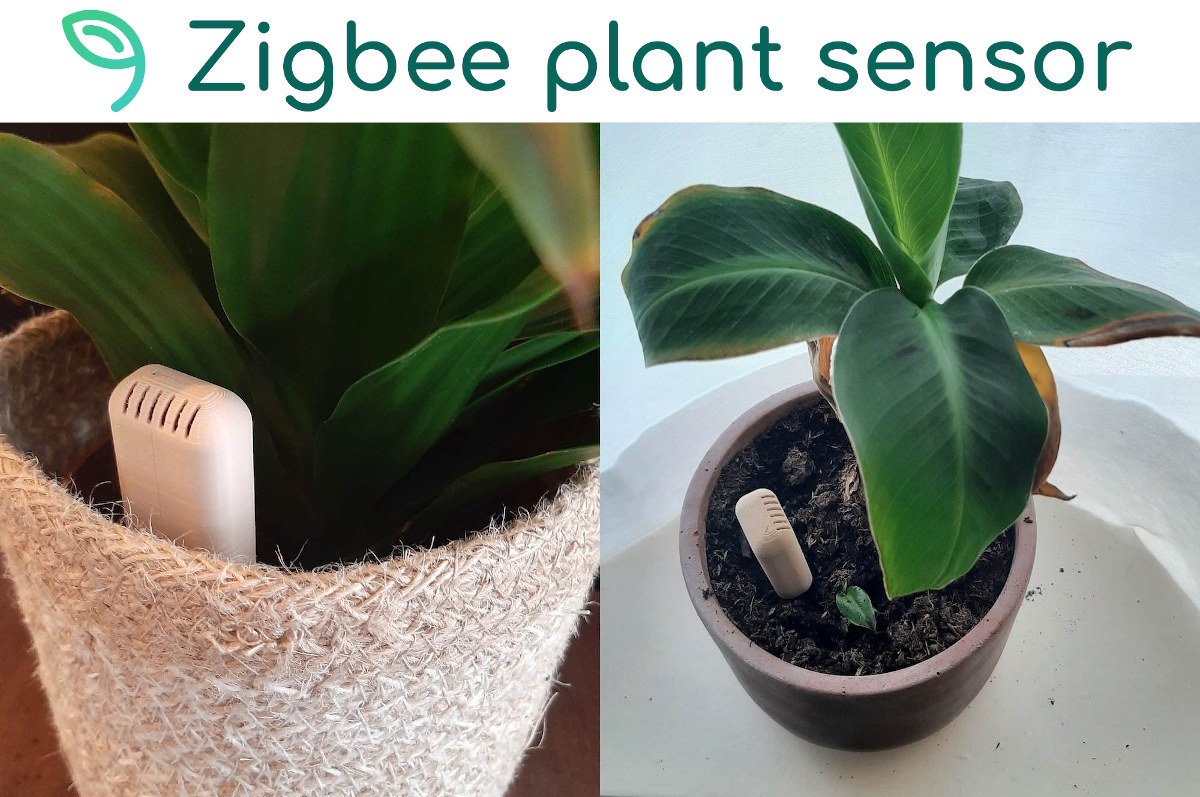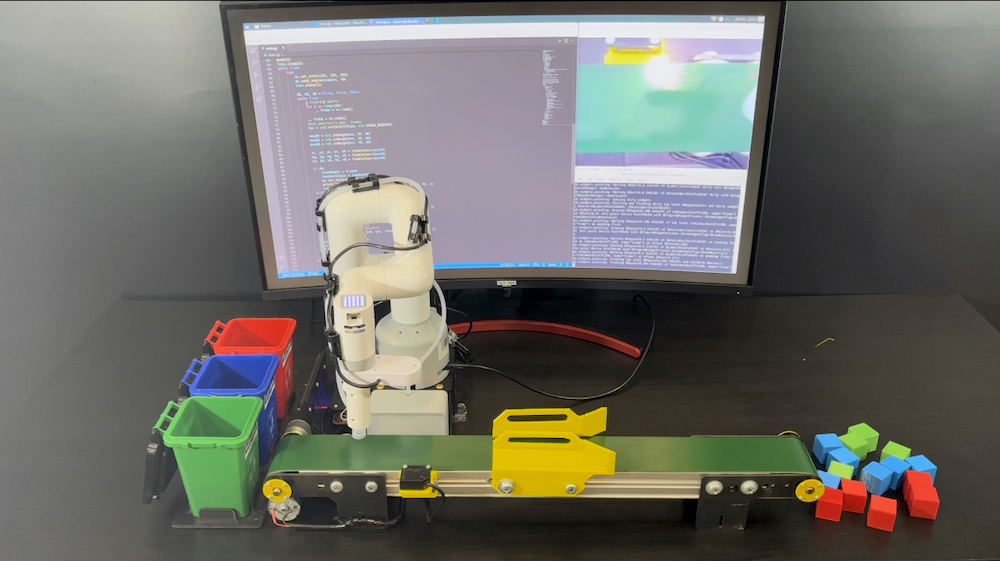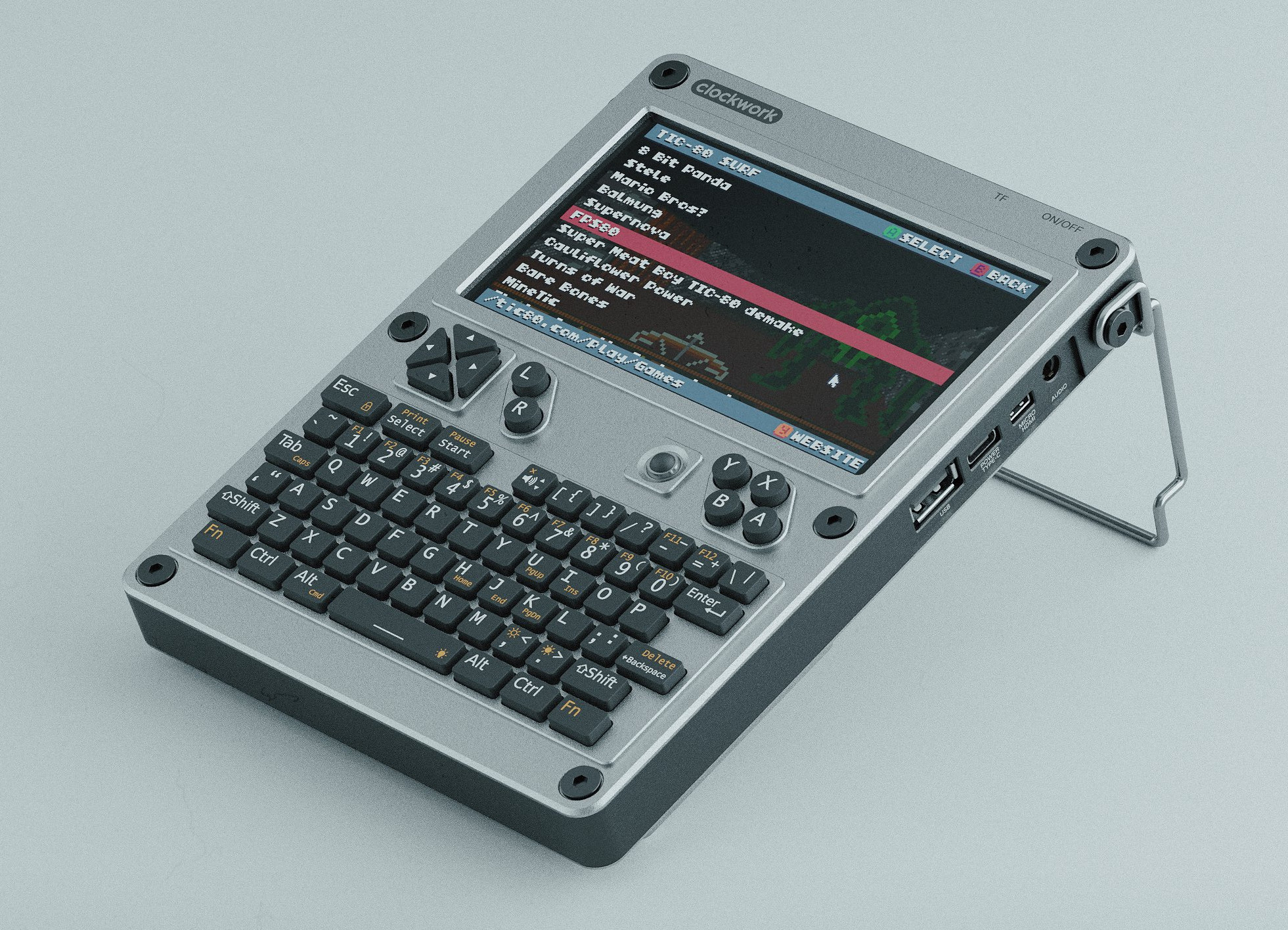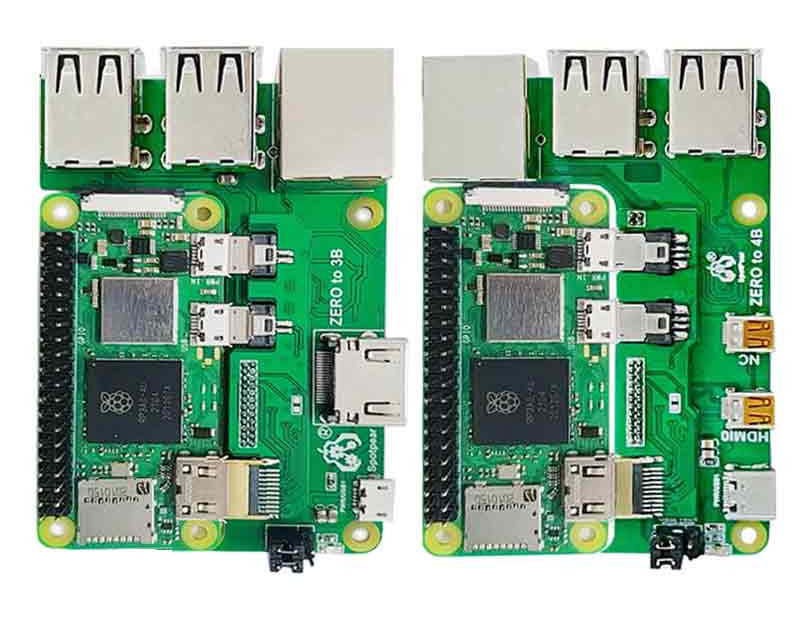The third prize of this year’s giveaway week comes courtesy of ELECFREAKS which offers a Cutebot Pico:ed kit based on the Pico:ed board with a Raspberry Pi RP2040 microcontroller and following BBC Micro:bit form factor. The kit also includes two high-speed motors to drive two wheels, ultrasonic & distance sensors, two RGB LED lights and clearance lamps on the bottom, two line-tracking probes, and an active buzzer used as a horn. It is powered by three AAA batteries. The company initially me asked me if I wanted to review the board/robot, but since I may not have the time to do so, I asked whether they wanted to be included in our yearly giveaway week which they accepted. The company provides instructions to program the robot with “Micro block” visual programming IDE, C++, and CircuitPython. You’ll find resources to get started and eight projects for the robot in the Wiki. […]
Giveaway Week – e-con Systems e-CAM20_CURB camera
Today, we’re giving away the e-con Systems e-CAM20_CURB is a 2.3MP color camera with a global shutter that is designed to work with Raspberry Pi 4 SBC. The camera is based on ON Semiconductor AR0234CS CMOS sensor and supports uncompressed video at 1920 x 1200 (2.3MP) up to 60 fps, 1920 x 1080 (Full HD) up to 65 fps, and 1280 x 720 (HD) up to 120 fps. I just completed the e-CAM20_CURB camera review with Raspberry Pi 4 last weekend and found the video smoothness and quality to be much better than most cameras I’ve tried when there is motion, even in relatively dark scenes, since motion blur and artifacts are reduced. The company provides Yocto Linux and Raspbian/Raspberry Pi OS images with V4L2 drivers and Gstreamer tools, and the camera was fairly easy to use with the Yocto image thanks to the useful documentation provided with the kit. […]
RP2040 firmware converts Raspberry Pi Pico into a an I2C to USB bridge
Nicolai Electronics’ rp2040-ic2-interface open-source firmware for the Raspberry Pi Pico (or other Raspberry Pi RP2040 boards) converts the board into an I2C to USB bridge to connect any I2C sensor or module to a PC or other hardware without GPIOs. The firmware implements the USB protocol expected by the I2C-Tiny-USB kernel driver used by the original I2C-Tiny-USB project for Microchip ATMega 8-bit AVR microcontrollers. The RP2040 is however not a fork of the original project, but instead a complete re-implementation of the firmware. You’ll need to connect your I2C sensor, display, or another module to the SDA (GPIO 2) and SCL (GPIO 3) pins of the Raspberry Pi RP2040 microcontroller and flash the “pre-release” firmware to the board. You’ll find it together with the source code written in C language on GitHub. Note the project has a “proof of concept status” and more testing is needed to make sure that […]
Getting started with e-CAM20_CURB camera for Raspberry Pi 4
e-con Systems e-CAM20_CURB is a 2.3 MP fixed focus global shutter color camera designed for the Raspberry Pi 4, and the company has sent us a sample for evaluation and review. We’ll start by providing specifications, before checking out the package content, connecting the camera to the Raspberry Pi 4 with a DIY LEGO mount, showing how to access the resources for the camera, and trying tools provided in the Raspberry Pi OS or Yocto Linux image. e-CAM20_CURB specifications The camera is comprised of two boards with the following specifications: eCAM217_CUMI0234_MOD full HD color camera with 4-lane MIPI CSI-2 interface ON Semiconductor AR0234CS CMOS sensor with 1/2.6″ optical form-factor Global Shutter Onboard ISPimage sensor from ON Semiconductor Uncompressed UYVY streaming HD (1280 x 720) up to 120 fps Full HD (1920 x 1080) up to 65 fps 2.3 MP (1920 x 1200) up to 60 fps External Hardware Trigger Input […]
b-parasite Bluetooth LE plant sensor gets Zigbee support
rbaron’s b-parasite is an open-source hardware Bluetooth LE plant watering sensor that can measure soil moisture and ambient temperature/humidity/light and works with ESPHome, Home Assistant, or any macOS or Linux platforms including the Raspberry Pi boards. It is based nRF52840 multi-protocol wireless microcontroller, so stanvn decided to add Zigbee support to the b-parasite through the “Zigbee Plant Sensor” firmware based on the Nordic Semi nRF5 SDK for nRF52 series of SoCs and working with Zigbee2MQTT. Let’s have a look at b-parasite hardware specifications first: Wireless MCU – Nordic Semi nRF52840 Arm Cortex-M4F multi-protocol wireless microcontroller with Bluetooth LE 5.0 and 802.15.4 (Zigbee/Thread) radios, 1024 KB flash, 256KB SRAM Sensors Capacitive soil moisture sensor Sensirion SHTC3 temperature and humidity sensor ALS-PT19 light sensor Power – ~200 mAh CR2032 coin-cell battery estimated to last for a couple of years with readings every 10 minutes The GitHub repository for the board contains the […]
Review of myCobot 280 Pi robotic arm with Python and visual programming
myCobot 280 Pi is a versatile robotic arm with a 6 degree of freedom design. It was developed by Elephant Robotics using the Raspberry Pi 4 board as the main controller. The robot is compact and delivers stable operation making it ideal for confined spaces. It can also be programmed in a variety of languages, is easy to use, and offers a lot of features. It is suitable for those who are interested in learning how to program a robotic arm controller and for engineering projects. Unboxing myCobot 280 Pi The myCobot 280 Pi arm has a working range of 280 mm, weighs 850 grams, and can handle a payload of up to 250 grams. It is powered by 6 servo motors, one for each degree of freedom, and comes with a 5×5 matrix LED display, and supports LEGO parts as well. Controlled by a Raspberry Pi 4 single board […]
uConsole is a modular Arm or RISC-V handheld computer with optional 4G connectivity
Clockwork’s uConsole is a modular handheld computer with a 5-inch display, a built-in keyboard, and based on a carrier board supporting various Arm or RISC-V modules compatible with the Raspberry Pi CM3 or CM4 form factors. The device is offered with a system-on-module with up to 4GB RAM, a WiFi 5 and Bluetooth 5.0 wireless module, features micro HDMI video output, USB ports, and an audio jack, plus expansion connectors for more advanced users, and takes two 18650 batteries for power. The company also offers a 4G LTE module for cellular connectivity. The mainboard, called ClockworkPi v3.14 revision 5, offers the following: System-on-module socket – 200-pin DDR2 SODIMM socket compatible with Raspberry Pi CM3 and, through an adapter, Raspberry Pi CM4 and compatible modules Storage – MicroSD card socket Video Interfaces 40-pin MIPI DSI connector micro HDMI interface for external display Audio – 3.5mm audio jack with headphone and microphone […]
Adapters convert Raspberry Pi Zero 2 W into Raspberry Pi 3 or 4
Spotpear’s Raspberry Pi Zero 2 W to Raspberry Pi 3/4 adapters would not exist in a “normal” world of abundance that still existed a little less than 3 years ago. But I suppose extraordinary times require extraordinary adapters… If you have a spare Raspberry Pi Zero 2 W lying around but would rather like getting the ports from a Raspberry Pi 3 or Raspberry Pi 4, Spotpear has designed three adapters that can also be used as USB docks from a computer or mobile phone. The first adapter the “ZERO to 4B” will get you a Raspberry Pi 4-looking SBC with a Raspberry Pi RP3A0 system-in-package (Quad-core Cortex-A53 CPU + 512 MB RAM), and most of the same ports, except only three USB 2.0 Type-A ports are available with a maximum speed of 480 Mbps, and only one HDMI output due the inherent limitations of the Raspberry Pi Zero 2 […]


